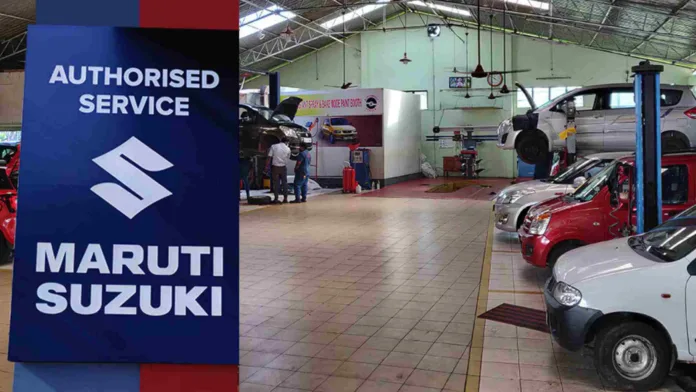The Delhi Bench of Customs, Excise and Service Tax Appellate Tribunal (CESTAT) has quashed service tax demand on Maruti Suzuki Service Station and held that new parts used in vehicle repairs amount to goods transfer.
The bench of Dr. Rachna Gupta (Judicial Member) and P.V. Subba Rao (Technical Member) has observed that transfer of goods consumed while rendering service also amounts to transfer of property in goods and are covered under the definition of deemed sale of Article 366 29(A). But the mere fact that in case the value of consumable is not determinable it is Rule 2(A)(ii) of Valuation Rules which is applicable.
The appellant, M/s Prem Motors (P) Ltd. is engaged in providing of output services namely, repair, reconditioning, restoration or decoration or any other similar services of motor vehicle, business auxiliary service, business support service etc.
During the course of audit of the records of the appellant by officers of the Central Excise Audit Commissionerate, Jaipur, it has been observed that the appellant has been carrying out repair and maintenance, has been issuing the Motor Vehicle on the basis of job card prepared at the time of handing over of motor vehicle by the customers to the appellant and after completion of repair and maintenance, has been issuing the invoice charging for repair and maintenance of a vehicle, which appears to be a contract of repair of Motor Vehicle.
The Department observed that the appellant in some of the cases, the appellant issued single invoice for all the works i.e. charges of parts, and paid VAT on such charges; labour charges and paid service tax on full value of labour charges; and charges for painting work and paid service tax on 70% value of such painting work and opted for valuation under Rule 2A(ii)B of Service Tax (Determination of Value) Rules, 2006. In other case of labour charges for repair and maintenance, the appellant paid service tax on full value of labour charges thereby they opt for valuation of such work contract under Rule 2A(i) of Service Tax (Determination of Value) Rules, 2006.
The department formed the opinion that they are not supposed to opt/follow both the procedures of valuation, as stipulated under Rule 2A(i) ibid and under Rule 2A(ii) for one single contract/invoice. Since the appellant has not included the value of parts of motor vehicle, in the value for charging service tax by opting Rule 2A(i) ibid and paid service tax on full value of labour charges, therefore, they have opted valuation method under Rule 2A(i). The procedure should have been followed in another case also i.e. for painting jobs and so the service tax should have been paid on full value of charges of painting. The details of charges collected from customers during the period May, 2013 to September 2015 by the appellant along with other documents were received from the appellant.
The appellant submitted that where the value in property of goods transferred while rendering the services was determinable, the liability has been calculated in terms of Rule 2A(i) of Service Tax (Determination of Value) Rules, 2006. With respect to paint job executed by the appellant it discharged the service tax in relation to the service portion involved in execution of the work contract in terms of Rule 2A(ii) of the Valuation Rules purely for the reason that the value of paints consumed in the execution of works contract was not available. The former mode of payment has not been disputed by the department. However, the tax calculated as per Rule 2A(ii) of Valuation Rules has been objected to, alleging the short payment of service tax by the appellant.
The CESTAT held that there is no justification when the order has denied the bifurcation of the composite contract and has disallowed the computation of part of the contract where the value of goods and service rendered indivisible unquantifiable. As a result, the service tax demand has wrongly been confirmed.
Case Details
Case Title: M/s Prem Motors (P) Limited Versus Commissioner, Central Excise & Central Goods & Service Tax, Jaipur
Case No.: Service Tax Appeal No. 51360 of 2019
Date: 02.05.2025
Counsel For Appellant: Vishal Kumar
Counsel For Respondent: Manoj Kumar

